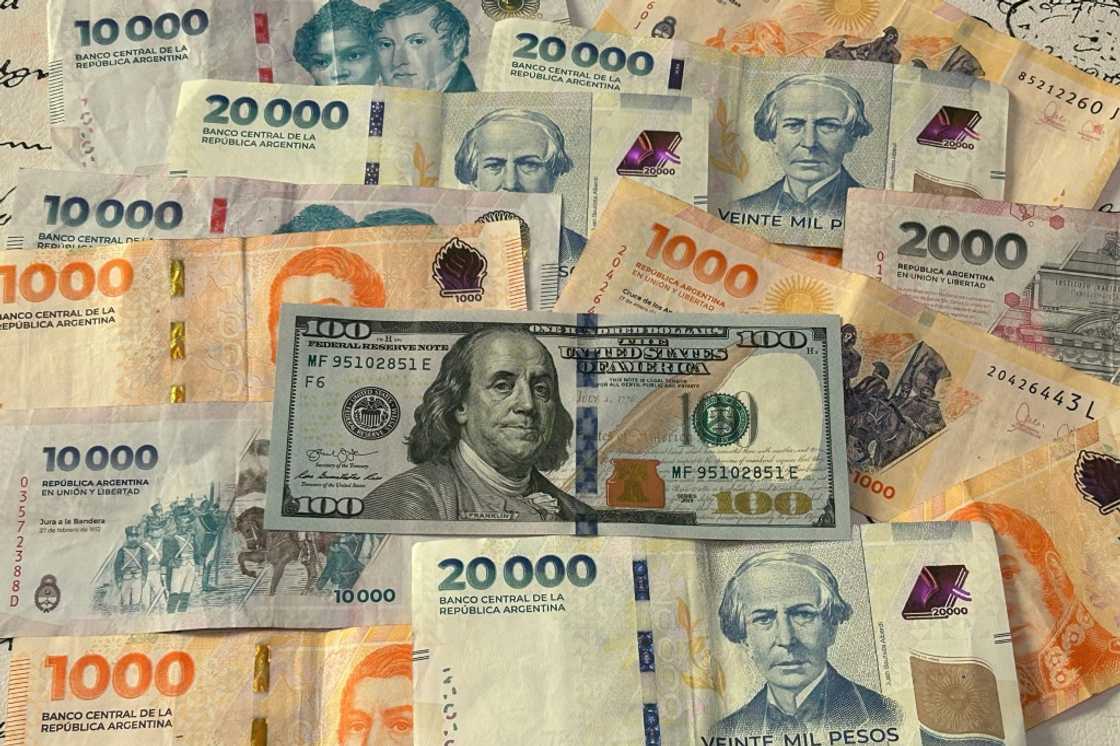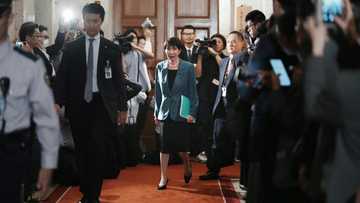Argentina's central bank intervenes to halt run on peso

Source: AFP
Argentina's central bank said Tuesday it had sold $45.5 million dollars on the foreign exchange market to try and halt a run on the peso days ahead of midterm elections that have put pressure on the currency despite substantial US financial aid.
Argentines have scrambled to buy dollars amid fears of peso devaluation ahead of Sunday's vote, which is being closely watched by President Javier Milei's allies in Washington.
Since a run on the peso began on September 8 -- in the aftermath of a defeat for Milei's party in bellwether elections in Buenos Aires province -- it has lost 8.48 percent to the dollar.
Legislative elections Sunday will determine whether the budget-slashing Milei, whose party is in the minority, will wield more power in parliament in the second half of his term.
US counterpart Donald Trump, a staunch Milei ally, has already warned that "if he loses, we are not going to be generous with Argentina."
The peso closed Tuesday at 1,515 to the greenback at Argentina's official exchange rate -- a drop of just over 1.3 percent from Monday.
At the alternative rate used for foreign transactions, the peso measured 1,490.50 to the dollar -- just shy of the outer limit of a floating exchange rate band set by the government amid high currency volatility.
Before Tuesday's dollar sale, the central bank's last market intervention was in September, when it sold over $1.1 billion in three days to prop up the peso, which economists say is substantially overvalued.
Last week, US Treasury Secretary Scott Bessent announced efforts to secure a new $20 billion "facility" to support the South American country's embattled economy.
The announcement brought the total promised assistance from the United States to a whopping $40 billion, causing Argentine stocks to surge.
But there are signs of trouble ahead.
Inflation, which Milei has slashed by two-thirds in two years in office, has been creeping up again for three consecutive months to reach 2.1 percent month-on-month in September -- the highest since April.
There are also signs of economic stagnation, with declining consumption, a slowdown in manufacturing, and interest rates above 100 percent per year.
Source: AFP




